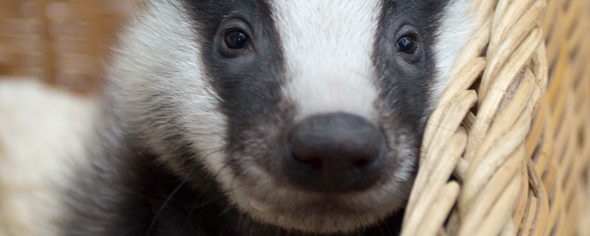


The Diddly Squat Farm, owned by TV presenter Jeremy Clarkson and a part of the ‘Clarkson’s Farm TV show’, was the subject last week of multiple media reports on positive bovine TB tests in their small cattle herd. Perhaps the most dreaded event for any cattle owner and the prelude to an often long, expensive and heart-breaking series of events.
Reports suggest that a pregnant cow, with a calf that has been separated, is a positive reactor and to be slaughtered, while a bull and a few other cattle have produced tuberculin test results labelled ‘inconclusive’. Inconclusive results usually indicate an active infection, but not one where TB lung lesions are necessarily detectable.

England uses a SICCT test system that is failing and outdated; see the explainer here. In Wales, the SICCT test, with its extremely high specificity, is now read at ‘severe interpretation’, meaning that the ‘positive’ cut-off point (difference in bump size) is lowered so that some animals classified as ‘inconclusive reactors’ at the standard interpretation are now classified as full ‘reactors’ for management purposes. Wales has made similar progress to England without badger culling. Not finding TB on culture (in the lab) at post-mortem for some cows at slaughter, often happens simply because the infection is at too early a stage for the lesions to be visible to the eye, but that doesn’t mean they are not infectious.
The Daily Telegraph immediately, and relying on traditional anti-badger rhetoric, jumped to the conclusion that the infection was from badgers:
“Clarkson has spoken before about how badgers are rife on his farm and how he has tried to keep them away from his cows. But even with an Amazon budget and celebrity profile, the presenter was unable to stop transmission of the bacteria from badger to cow.”
But Clarkson confirmed that badgers have been heavily culled in his area in multiple yeas of culling ending last October. There are even reports that some of the badger setts in the area have been stopped up by others. So in an interview on Times Radio he is rightly uncertain as to how the disease arrived.
As with the majority of new bovine TB infections, the source is most likely to be undisclosed TB in purchased stock. Government’s external veterinarian of choice, Cambridge University’s James Wood claimed recently (on Farming Today) that:
“The challenge is with this [testing] system, the controls are imperfect, so that when we clear a farm with TB we know that a proportion that maybe as high as 25 or 50%, a proportion will have one or two animals that are still likely to be infected.“
Infection embedded in herds and traded onwards to new herds is the real problem. A simple check on the bTB status of herds that Clarkson has bought from in recent years will soon show if individuals are from herds that have had infection over the half dozen years or more. This is towards the upper bounds of the length of time that bTB is known to ‘hide’, due to some individual cows not responding to testing and the poor sensitivity (lots of false negatives) of tests used.
Clarkson recognises that the bTB system is a failure and questions why if TB meat can be eaten, the strict measures are absolutely needed. The fact that since pasteurisation was brought in bTB is not a significant human health risk is important, but Defra have rejected a rethink to relax massive public spending, and for it to be dealt with in a similar way to Johnes disease. Which is caused by a similar and widespread bacteria, spread by faecal contamination. Hence farmers face a draconian system imposed without access to alternative and better tests that Government have long-suppressed.
If Jeremy Clarkson can shine a light into the murky depths of bovine TB control policy and he does so with the appropriate seriousness, he will be doing farming a huge favour. But he will have to careful where he gets his advice and information from; that will dictate how successful he is. There are plenty of people giving bad advice, for all sorts of reasons.

